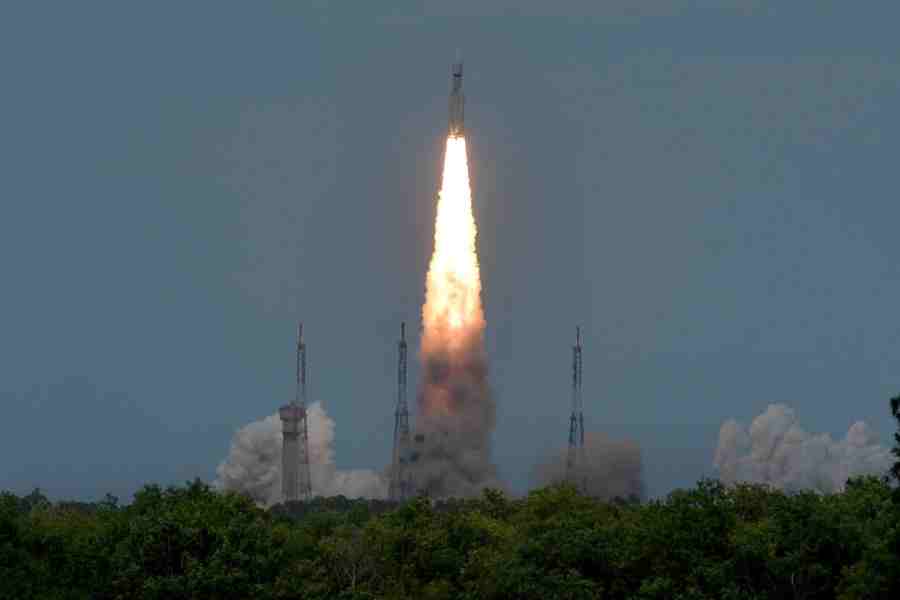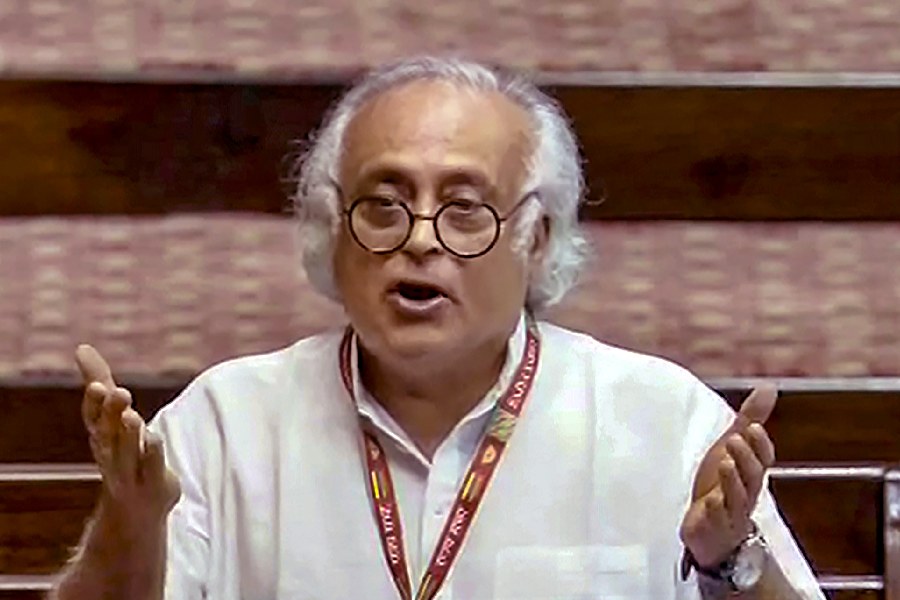The Opposition parties in the Rajya Sabha on Wednesday described the success of the Chandrayaan-3 mission as a result of the "competencies, capabilities and capacities that have been created over 60 years" in space research, not the achievement of the Narendra Modi government alone or a symbol of "muscular nationalism".
The Opposition also decried the removal of Darwin’s theory of evolution from school textbooks and statements that undercut the contributions of science and demanded freedom of and full support for scientific institutions, particularly government-run engineering colleges whose graduates become scientists at the Indian Space Research Organisation (Isro).
Congress leader Jairam Ramesh gave a detailed account of the growth of India’s space programme that started with the setting up of the Indian National Committee for Space Research (INCOSPAR) in 1961. He said the success of Chandrayaan-3 showed the continuity of support of all governments and the many achievements of scientists.
Ramesh recalled the contributions of scientists Homi J. Bhabha, Vikram Sarabhai, Satish Dhawan, M.G.K. Menon, E.V. Chitnis, A.P.J. Abdul Kalam, U.R. Rao, K. Kasturirangan, G. Madhavan Nair, R. Radhakrishnan, K. Sivan and S. Somanath, the current Isro chief.
The Congress communications chief said 1963 marked the second landmark success of the space programme when India launched a sounding rocket at Thumba in Kerala. The setting up of Isro in 1969 marked the third milestone, Ramesh said.
After the death of Sarabhai in 1971, then Prime Minister Indira Gandhi wrote to Dhawan, then director of the Indian Institute of Sciences who had gone to the California Institute of Technology on a sabbatical, to take the leadership role at Isro. Indira gave Isro chairpersons full freedom and direct access to the Prime Minister, Ramesh said.
“The first milestone of a glorious space journey that the LoH (leader of the House Piyush Goyal) wants us to believe started only after 2014 was laid in 1962. The success of Chandrayaan-3 is based on the competencies, capabilities and capacities that have been created over 60 years,” Ramesh said.
He sought to define leadership by pointing out that then Isro chief Dhawan had come forward and taken responsibility when a satellite launch vehicle (SLV) failed in 1979. When the SLV was successfully launched the next year, Dhawan gave credit to Kalam, Ramesh recalled.
“This is leadership. Leadership is not taking credit when things are going good and running away when things are going bad,” he said.
Ramesh said India’s space programme had always been aimed at the development of the people, not to be projected as a symbol of nationalism.
“The space programme is seen as an instrument fulfilling development aspirations. It is because of the Indian National Satellite System (Insat) that we could do weather forecasting, locate sources of water and create maps. I would like to urge you to look at our space programme fundamentally as an instrument of development, not as an instrument of muscular nationalism,” Ramesh said.
He referred to Modi’s statement that Chandrayaan-3 had stirred up excitement among the public and said such emotions had no meaning when Darwin’s theory of evolution was dropped from school textbooks.
“You think all knowledge was available to India 2,000 years ago. That is not scientific temper. Scientific temper is the spirit of enquiry and the spirit of questioning. We had glorious traditions in mathematics, metallurgy and astronomy. Let us take pride in our past but let us not think that all modern science was known to us 2,000 years back,” Ramesh said.
Trinamul Congress MP Jawhar Sircar said, referring to statements by the ruling dispensation that undermine science: “How can you say Ganesh’s head was placed through plastic surgery? How can you say people knew stem cell science in the Mahabharata era?”
He lamented India’s poor spending on research and development. In terms of ratio of the gross domestic product, India spends 0.65 of the GDP on research and development while the country has waived corporate tax to the tune of Rs 4 lakh crore in the budget, Sircar contended. He said a cumulative loan amount of Rs 12.5 lakh crore had been written off by public sector banks.
The government denied the allegation of the moon mission being used for “muscular nationalism”. Goyal initiated the discussion on “India’s space journey marked by the successful soft landing of Chandrayaan-3”.
Finance minister Nirmala Sitharaman said Ramesh’s choice of words was inappropriate.
“If the Prime Minister stands next to (then Isro director) Sivan and the (Chandrayaan-2) mission fails and the Prime Minister says ‘the best is yet to come’, it is not muscular nationalism. Scientists are given due credit,” she said.
Sitharaman referred to criticism about the decline in funding for space by saying the government was encouraging private investment in the sector.
About naming the Chandrayaan-3 landing spot Shiv Shakti Point, Sitharaman said it denotes Ardhanariswara principles, signifying both Shiva and Shakti. She hailed women scientists who played a crucial role in the mission.












